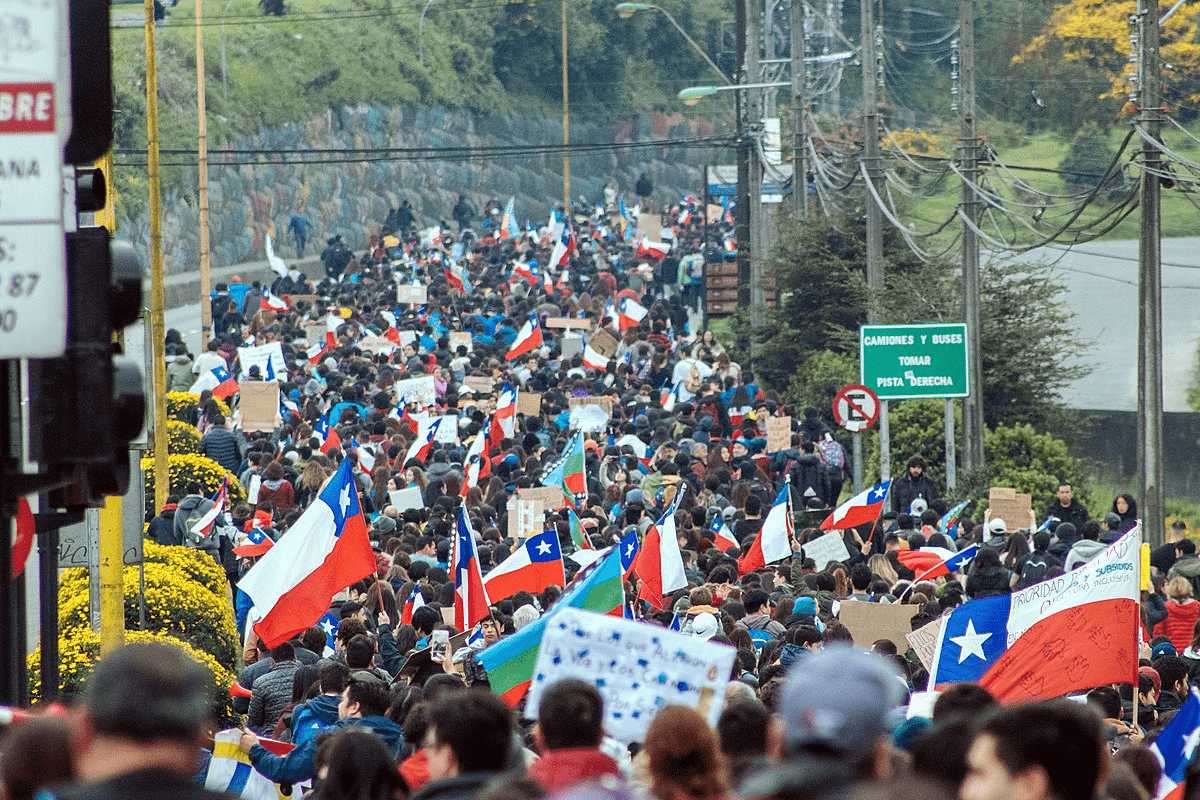Warwick students caught in crossfire of worldwide protests
The situation in countries in which Warwick students are studying abroad is monitored “on a daily basis”, the University has confirmed as protests continue worldwide.
Spain and Chile have seen ongoing violent protests. In the latter, more than 20 lives have been claimed, with another 2,500 injured and over 2,800 arrested.
Last month, Warwick called back its exchange students in Hong Kong for their safety amid months-long protests that has resulted in hundreds of injured protesters, as well as thousands of arrests and a few deaths.
According to the University of Warwick, it monitors the situation in other countries “daily” and follows advice from “a broad range of sources” to understand the domestic context of international destinations.
“The University made available the necessary financial support to leave to students who were studying at Hong Kong universities or at Higher Education Institutions located in areas of concern in Chile,” it told The Boar.
48 outbound students are spending their time abroad in Santiago de Chile in a handful of partner institutions, such as the Pontifical Catholic University of Chile (UC) with 29 Warwick students, and the University of Chile with 15.
Protests in Santiago de Chile, the South American state’s capital city, are still ongoing after Chile’s president, Sebastián Piñera, yielded to most protesters’ demands in social spending, but refused to resign.
Both federations of students at Santiago de Chile’s main institutions fully support the protests and encourage student participation, be it directly through demonstrations or providing sanitary and legal assistance to injured or arrested activists.
The University made available the necessary financial support to leave to students who were studying at Hong Kong universities or at Higher Education Institutions located in areas of concern in Chile
– The University of Warwick
“We agree with the citizenship’s demands,” the Students’ Federation of UC told The Boar. “We have participated in the protests, and we also organize formative activities such as councils, talks, forums, and so on.”
“Of course, we support the protests,” said a representative of the Students’ Federation of the University of Chile. “We are in the streets protesting in many ways.”
These federations, equivalent to student unions in the UK, also cooperate with other organisations and movements involved in the protests, for instance the Movimiento Salud en Resistencia which translates to “Health in Resistance Movement”.
The University of Chile’s Economics and Business School maintains an exchange agreement with Warwick Business School (WBS) since 2014. According to its International Office’s Head Stephanie Dazin, the Chilean institution has kept Warwick “informed of all decisions and developments at all times”.
The semester at this institution was supposed to end on 27 November but was cut short “in a timely way” as part of their emergency protocol, according to Ms Dazin.
Professors with international students in their classes have been asked to give exchange students take-home exams or to directly assign final grades based on their average at the time.
“This is to allow all international students to return home on time and get their transcripts in January as usual,” explained Ms Dazin. “As a result, most international studentshave left Chile now.”
Students abroad in Chile and UC have been contacted for comment.
We are in the streets protesting in many ways
– A representative of the Students’ Federation of the University of Chile
In Barcelona, the capital of the Catalan region, Pompeu Fabra University hosts 139 Warwick students, Escola Superior d’Administració i Direcció d’Empreses (ESADE) hosts 119 students and a few other universities host a total of 269 Warwick students.
Separatist tensions in Spain have culminated in riots and protesters clashing with police forces, resulting in more than 600 injured (including 289 members of the police), over 200 arrests and hundreds of fires across Barcelona, according to The Guardian.
The conflict in Spain is a long-running issue that has been going on for years, which means that past exchange students in Catalonia have also faced similar experiences.
“I was there probably in one of the better years out of the last three,” Dylan Thurgood, a student of Economics who spent the 2018-2019 academic year at Pompeu Fabra University commented to
The Boar.
He said that during his time abroad he noticed the continued presence of police officers at his university, days of strikes – one of which affected the exam period – and the closure of the institution’s doors in certain key dates, such as 1 October.
Lectures being called off to “prevent any risks” have also affected Kuba Bajda, a Business Analytics undergraduate and currently outbound to ESADE.
They asked you to write sort of a diary entry every couple of weeks to say how it’s going
– Kuba Bajda
Both students stress that the situation was never particularly scary for them, although Thurgood did take precautions to avoid demonstrations.
According to Bajda, the University of Warwick has not provided him any support to this date. In-
stead, he perceives ESADE to have been very helpful, with multiple emails informing him on how to act and discussions with his counsellor to confirm his wellbeing.
Thurgood said that he found Pompeu Fabra University lacking in checking his welfare and instead thought Warwick’s response was satisfactory.
“They asked you to write sort of a diary entry every couple of weeks to say how it’s going,” explained Thurgood. “Also, they asked ‘Are you OK?’ And I guess that’s all they can do, right? I just always thought there isn’t much I need…or I wouldn’t know what to ask for.”
Catalonian universities and student representatives have been contacted for comment.
The University did not disclose whether there have been any previous occasions when it had to call outbound students back home.

Comments